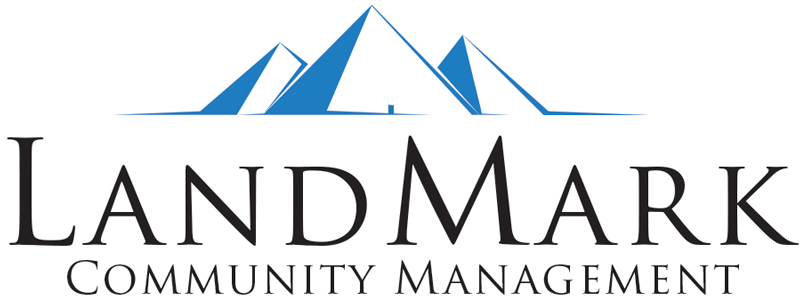An HOA special assessment may seem redundant for HOAs that already charge monthly dues. But, they have a specific purpose and help the HOA in different ways. Here are all the basics about HOA special assessments.
What Is an HOA Special Assessment?
HOA special assessments are an extra fee that homeowners associations levy on their members. Homeowners must pay them on top of their monthly HOA fees.
Why do HOAs charge special assessments? HOA fees can cover the cost of daily operations in a community association, but there are times when natural disasters strike. A well-managed HOA will usually have insurance to cover the cost of repairs resulting from calamities. However, if the insurance is insufficient, the board may levy special assessments on the HOA members.
Moreover, special assessments may pay for amenities that need major repairs or upgrades for aging infrastructure. They may also be used for new installations and projects within the community. Apart from this, these fees may even cover the board’s budget miscalculations. It can also cover budget deficits as a result of homeowners defaulting on their monthly payments.
How Often Do HOAs Charge Special Assessments?
Homeowners associations should rarely charge special assessments. That’s because these fees are usually reserved for emergencies and large projects. A healthy HOA should already have enough money from fees and reserve funds to cover daily operations. If not, there may be a problem with the HOA’s financial planning.
When an HOA does levy special assessments, it will usually last a long time. Often, homeowners will need to pay a few hundred dollars over the course of a few months to one year. That’s because many homeowners cannot afford to pay a one-time special assessment. After all, each resident may need to pay thousands of dollars in total just to cover the expenses.
HOA Special Assessment Rules
Homeowners associations do have the authority to levy special assessments on their members. But, there are certain rules these associations must abide by. These rules may have legal repercussions or simply indicate best practices when it comes to levying special assessments.
1. HOAs Must Follow the Governing Documents
Homeowners associations are legally allowed to levy special assessments. But, they must follow the community’s governing documents and abide by the rules stated there. The covenants, conditions, and restrictions (CC&Rs) often specify why the HOA can levy special assessments. Reasons outside of these may be prohibited.
The governing documents may also indicate the HOA board’s procedures when levying special assessments. For example, the community may be required to vote on the special assessment. The governing documents may also indicate when the HOA should notify homeowners before they can start collecting special assessments.
However, sometimes, the governing documents are vague in their language. In such cases, the HOA may have more power when it comes to charging these assessments for unexpected expenses.
2. HOA Special Assessment Limit
There are rules regarding how much an HOA can charge for special assessments. It’s best to look at any applicable local or state laws for this. For example, California disallows special assessments that surpass 5% of the budgeted gross expenses for the fiscal year. HOAs can only do so if the majority approves.
3. Refusal to Pay Will Have Consequences
An HOA special assessment can seem unreasonable for many homeowners. After all, it can significantly impact a community member’s finances, especially if the special assessment is high. This can lead to many homeowners defaulting on their payments.
Homeowners should anticipate various consequences when they default on their special assessments. They can find the consequences of refusal to pay in the community’s governing documents. Often, this involves additional late fees or fines.
In some cases, the homeowners association may also restrict a member’s use of amenities and shared spaces. For instance, a homeowner may not be allowed to enter the community clubhouse or use the community fitness center.
Apart from this, homeowners associations may also place a lien on the homeowner’s property. This only happens when the case is serious. But, homeowners should be prepared to take the issue to court, as HOAs may file for foreclosure.
This may seem like an unreasonable course of action for the HOA. However, many states do allow homeowners associations to place a lien. Some states, like Texas, are silent on this and leave the matter up to the community’s governing documents.
Can Community Members Challenge Special Assessments?

The members of a homeowners association may find the special assessment unreasonable or inconvenient. As such, they may file a complaint or formally challenge the homeowners association for levying the special assessment.
While this is possible, it can be risky for the homeowner because the issue may end up in court. If the court finds the special assessment reasonable according to the community’s covenants, the homeowner may need to pay even more money in legal costs.
That said, it’s best for homeowners to read the community’s CC&Rs before they formally challenge the special assessment. Otherwise, they may end up losing a legal battle and face all the consequences of non-payment.
Community members can also prepare themselves by attending board meetings and reading community newsletters. This can inform homeowners of upcoming special assessments and if there might be a vote for these extra charges.
Meeting the Community’s Needs
An HOA special assessment can be necessary. After all, unexpected calamities may still occur no matter how well an HOA board plans the budget. Even with a reserve fund and sufficient insurance coverage, a healthy HOA may still need to ask more from its homeowners. But, there are times when HOAs levy special assessments simply because of poor financial management.
In this case, the HOA should consider hiring an HOA management company for better financial planning. Landmark Community Management can help. We can meet all the needs of a homeowners association, whether it’s in financial planning, reporting, budgeting, or bookkeeping. Our company serves various HOAs in and around Texas. Contact us today!


